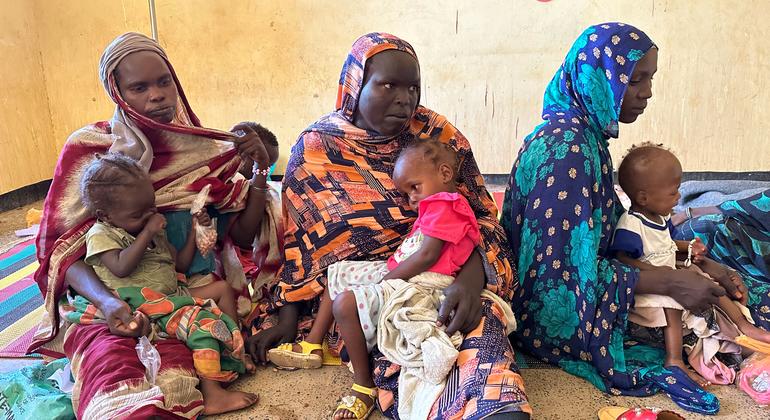UNICEF seeks $165 million for medicinal food to fight ‘silent killer’

The warning comes from the UN children’s agency UNICEF which said levels of severe wasting among children under five years of age remained high in several countries due to conflict, economic shocks and the climate crisis.
Deadly condition
Severe wasting – also known as severe acute malnutrition – is caused by a lack of safe, nutritious food as well as repeated episodes of illnesses such as diarrhea, measles and malaria.
Children become dangerously emaciated and their weak immune systems make them susceptible to stunted growth, poor development and death.
RUTF is an energy-dense micronutrient powder made from milk powder, peanuts, butter, vegetable oil, sugar and a vitamin and mineral blend.
It has helped bring millions of children away from the brink of death due to severe malnutrition.
“Over the past two years, an unprecedented global response has enabled the scaling up of nutrition programs to limit child malnutrition and related mortality in affected countries. severely affected by conflict, climate and economic shocks as well as the nutritional crisis among mothers and children,” he said. Victor Aguayo, UNICEF Director of Nutrition and Child Development Victor Aguayo.
“But Urgent action is needed now to save the lives of nearly two million children battling this silent killer..”

A four-month-old baby boy is fed with a spoon by staff at a hospital in Punjab province, Pakistan (illustration).
Goods are running out
UNICEF said RUTF shortages have left children at risk of going untreated in the 12 worst affected countries.
Mali, Nigeria, Niger and Chad are facing or are about to face shortages, while Cameroon, Pakistan, Sudan, Madagascar, South Sudan, Kenya, Democratic Republic of Congo and Uganda could run out of stock by mid-2025.
The situation in the Sahel region of Africa is exacerbated by prolonged droughts, floods and erratic rainfall. This leads to food shortages, high food prices and subsequently higher levels of severe waste.
For example, more than 300,000 children under 5 years old in Mali are expected to be severely wasted this year, yet nutrition programs began to run out of RUTF supplies in late July.
Meanwhile, the Government of Chad declared a food and nutrition emergency in February, and more than 500,000 children under the age of 5 are predicted to suffer severe wasting this year. Provinces with large refugee populations are particularly affected.
About 315,000 children nationwide were treated from January to August. Although the need remains urgent, RUTF’s inventory may be depleted by the end of this month.
‘There’s no time to waste’
UNICEF is seeking $165 million to fund the feeding, treatment and medical care of two million children at risk of death. update to it There’s no time to waste plan.
The initiative was launched in 2022 in response to the global food and nutrition crisis. Since then, UNICEF has mobilized more than $900 million to expand programs, services and supplies to prevent, detect and early treat wasting in children.
As a result, 21.5 million children and women receive essential serviceswhile 46 million children have access to early detection services And 5.6 million people have access to life-saving treatment.
No Time To Waste 2024 outlines the urgent funding shortfalls that are putting young people’s lives at risk. The call also highlights the need for continued local production of essential nutritional supplies, which is critical to sustaining interventions and improving community resilience in the face of the pandemic. malnutrition.
Children’s Nutrition Fund
To address severe malnutrition in children in the long term, UNICEF has launched a campaignChildren’s Nutrition Fund(CNF) last year, with support from the UK Foreign Commonwealth and Development Office, the Bill and Melinda Gates Foundation and the Children’s Investment Trust.
CNF’s objectives include supporting local and regional production of fortified foods, complementary foods and RUTFs for young children in areas with high levels of childhood malnutrition in an effort to avoid poverty. disruption of global supply chains, reducing the environmental impact of shipping and increasing job opportunities and economic growth. in communities.
Once fully deployed, the CNF will help protect countries from the capital shortages and demand fluctuations currently causing growing RUTF shortages.




